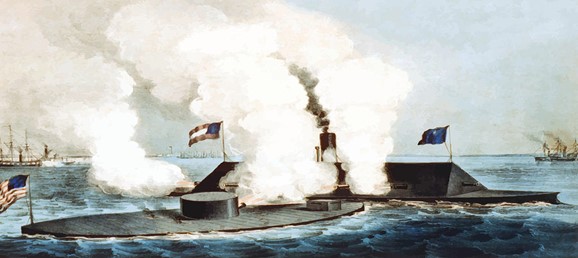Over a century ago, Richard Warren Sears and Alvah Curtis Roebuck founded their famous catalogue business with the slogan: “Satisfaction guaranteed or your money back.” But sometimes the customer isn’t right—especially when your customer is another business. Contract disputes between businesses are common, and often lead to expensive and time-consuming litigation. Merchants fail to deliver goods as ordered or fail to deliver them in a timely manner. Service providers fail to perform as promised. Sometimes, businesses interfere with a competitor’s business relations or commit other business torts to secure an unfair advantage in the marketplace. A business may get behind in its own lending arrangements, exposing business owners to liability on personal guaranties. When your business faces litigation, REIDDENNISFRICK’s litigators can help you develop a winning strategy to protect both your assets and your reputation.
Types of Commercial Disputes
Commercial disputes vary in their nature and complexity. Sales of goods and other common mercantile activity are governed by the law of contracts and the Uniform Commercial Code. Other types of business activity may be subject to other statutes governing a particular industry or type of transaction. Contractual relationships may be subject to the trade customs of a particular industry or to a course of dealing developed over time. While many disputes between businesses often involve breach of contract claims, others involve what some have dubbed “contorts,” including tortious interference and unfair competition claims. Whether you are a business owner or manage a business for someone else, you need an experienced business litigator you can trust when it first appears that litigation or arbitration is likely. Even if you have general counsel or your own litigation department, it is often helpful to have an objective outside perspective.
Disputes between Businesses
Commercial litigation between businesses can arise in many different contexts. Goods may not arrive on time or may not conform to the buyer’s needs or specifications. Shipments may be lost or may arrive damaged. Performance under a service contract might be unsatisfactory, or a business customer might have unrealistic expectations of a service provider. Franchisors may not provide the advertising or support they promised, and franchisees may not adhere to the requirements of their agreements. Distributors might be sued for product failures caused by manufacturer defects. Machinery may wear out or become obsolete before a capital equipment lease expires. Insurers might deny claims, unreasonably delay payment, or reserve their rights under a policy.
Many business disputes involve contractual relationships, leading to a lawsuit for breach of contract and resulting damages. Many common situations are addressed in the Uniform Commercial Code (“UCC”) and other statutory law governing commercial transactions. As business interrelationships have become more complex, sophisticated, and regulated, the legislature and courts have struggled to keep up with the changes on multiple fronts. Most courts in Texas are courts of general jurisdiction that hear far more criminal, family, and personal injury matters than business disputes. It is, therefore, not uncommon for business contracts to include arbitration clauses. Our business litigators are knowledgeable about the rules, procedures, and laws pertaining to resolving business disputes through trial, arbitration, and mediation.
With modern transportation and communication, it is not uncommon to see parties in a business dispute from different states, or even different countries. In some cases, the laws of these other jurisdictions conflict with those of the State of Texas. Some business contracts include “choice of law” and/or “forum selection” clauses. Disputes arising out of multi-state or international transactions often require familiarity with legal concepts like “personal jurisdiction” and “conflicts of laws,” or treaties like the Hague Convention on service of process abroad. Our firm’s litigators can help you determine what law governs your dispute and where your case may, or must, be heard.
Business Torts
Some business disputes arise out of fraudulent or unfair practices between business organizations. These business disputes often encompass tort claims like tortious interference with business relations, unfair competition, trademark or trade dress infringement, business disparagement, or even fraud. Damages in such cases often include lost profits which may be uncertain and are often difficult to prove. Business torts require the knowledge and skill of an experienced business litigator.
Business tort cases often arise when former employees or independent contractors (often incorrectly called “1099 employees”) go to work for a competitor or decide to open their own business to compete with their old workplace. Some businesses try to prevent this practice with non-compete, non-solicitation, and/or non-disclosure agreements. The law governing such agreements has changed rapidly over the last few decades, so it is important to have a lawyer familiar with which cases are stale because of more recent statutory changes. Even in the absence of such an agreement, former workers often cross the boundary of legal and fair competition, targeting known business relationships with disparaging information concerning their former employers to gain an unfair competitive advantage. Our business litigators can evaluate whether a former worker has crossed that line, help you to develop the evidence you may need to establish or defend against such a claim, and persuasively present your case.
Disputes between Businesses and Lenders
Business owners rarely have the financial resources to fund their businesses without help. At some point, nearly all businesses borrow money from financial institutions or other sources. Even relatively small “mom and pop” operations may qualify for SBA loans to kick-start their business. Traditional lenders rarely loan substantial money to most businesses without requiring collateral, often a security interest in the business’s equipment, machinery, inventory, and accounts receivables. When financial difficulties occur, payments may be delayed, creating conflict between a business and its lenders.
The owners of corporations and limited liability companies enjoy protection from personal liability for the debts of their business entities. But newer and smaller businesses rarely have the established credit history to secure conventional financing without a personal guaranty from their owners. While guarantors have historically been called “darlings of the law,” modern business financing has eroded many of the protections traditionally afforded to guarantors. When a business becomes unable to pay its lenders, the assets of the individual owners themselves may be in jeopardy. It is usually best to seek the advice of one of our skillful business lawyers to work out financing problems before they mature into full-blown litigation. In our experience, a shocking number of business owners don’t. Litigation between business owners and lenders requires the assistance of experienced, knowledgeable business litigators.
Some businesses secure funds through investment contracts or corporate debentures. These financing vehicles are sophisticated and may implicate state and federal securities laws or other statutes. Corporate debentures often involve “Delaware trusts.” The attorneys who paper these transactions are typically very specialized and highly compensated. Corporate debentures, therefore, tend to involve substantial sums of money. Investment contracts, on the other hand, can be for any amount. The lure of higher returns often attracts investors who overlook the correspondingly higher risks. In some instances, investment contracts may turn out to be part of a Ponzi scheme or other mass fraud. Investors may not realize they are victims. In many cases, the early unwitting victims of these mass fraud schemes find themselves re-victimized by regulators, receivers, their attorneys, and even courts in a misguided attempt to fairly apportion losses among hundreds of victims of the fraudsters. Some of our more experienced attorneys are familiar with many of the challenges presented by litigation concerning investment contracts and corporate debentures, including investment programs which are actually mass fraud schemes.
Particular Types of Business Disputes
The litigation attorneys at Reid & Dennis are experienced with a wide range of business litigation matters, including:
- Contract litigation
- Tortious interference and unfair competition
- Trademark and trade dress infringement
- Breaches of commercial leases
- Franchisor-franchisee disagreements
- Capital equipment leases
- Professional employer organizations (PEOs) and staff leasing
- Arbitration
Given the variety of business disputes, a comprehensive list of those with which our attorneys have experience would be unwieldy. If you do not see your type of matter listed above, contact us for more information. Our attorneys can tell you if we are the right choice to help you with your business litigation matter.

“Your most unhappy customers are your greatest source of learning.”
̶ Bill Gates


